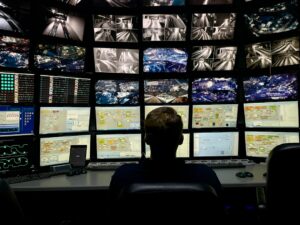Top 8 Multi-Agent Platforms Empowering Distributed Intelligence and AI Collaboration

Explore the top 8 multi-agent platforms that enhance distributed intelligence and foster collaboration among AI agents for solving complex problems.
Multi-agent systems (MAS) have revolutionized the landscape of artificial intelligence by enabling multiple AI agents to collaborate and solve intricate problems more efficiently than ever before. These systems leverage distributed intelligence to enhance decision-making, streamline workflows, and drive innovation across various industries. In this blog post, we delve into the top eight multi-agent platforms that are at the forefront of empowering distributed intelligence and AI collaboration.
Why Multi-Agent Systems?
The core advantage of multi-agent systems lies in their ability to decentralize problem-solving. Unlike traditional AI systems that operate in isolation, MAS allows for coordination and collaboration among multiple agents, each contributing uniquely to the overall solution. This collaborative approach is particularly effective in applications such as:
- Process Automation: Streamlining complex workflows by distributing tasks among specialized agents.
- Large-Scale Simulations: Modeling and analyzing complex systems that mimic real-world scenarios.
- Advanced Data Analytics: Enhancing data processing capabilities through distributed intelligence.
For AI researchers, businesses, and educators, multi-agent platforms offer a robust framework to build intelligent ecosystems capable of autonomous collaboration and innovation.
Top 8 Platforms for Building Multi-Agent Systems
1. Tribe
Tribe is an open-source framework designed for creating and deploying multi-agent systems with a focus on modularity. It allows developers to design agents tailored to specific tasks and seamlessly integrate them into cohesive teams. Tribe simplifies the experimentation with distributed AI architectures, making it ideal for those aiming to explore innovative AI collaborations.
2. InvictAI
InvictAI specializes in constructing scalable and high-performance agent teams. This platform provides a comprehensive set of tools to coordinate tasks across diverse agents, making it suitable for automating business workflows and conducting advanced research. InvictAI stands out for its ability to handle complex goals through seamless agent collaboration.
3. NetLogo
NetLogo is a versatile platform primarily used in academic and research settings for simulating multi-agent systems. It offers an intuitive interface for agent-based modeling across various domains, including biology and social sciences. NetLogo is an excellent choice for professionals seeking to understand the dynamic behaviors of multi-agent interactions.
4. LangChain’s LangGraph
LangGraph by LangChain provides robust tools for designing multi-agent workflows, featuring supervisor agents that oversee and coordinate other agents. This platform is particularly beneficial for developers integrating language models into their multi-agent ecosystems, enabling advanced applications in natural language processing and automation.
5. Microsoft AutoGen
AutoGen by Microsoft is a cutting-edge tool for developing intelligent agent workflows. Its modular design allows developers to create agents that can learn and adapt over time, making it ideal for building dynamic and scalable multi-agent systems that can evolve with changing requirements.
6. CreW AI
CreW AI focuses on collaborative workflows powered by multi-agent systems, tailored for enterprise applications. It offers tools to design and deploy agents that optimize operations and enhance team productivity, making it a go-to solution for businesses aiming to leverage the potential of MAS in their operations.
7. MindSearch
MindSearch is an open-source initiative aimed at enabling developers to build custom multi-agent systems for search and retrieval tasks. With a focus on intelligence augmentation, MindSearch is a valuable resource for projects centered around knowledge discovery and data mining, enhancing the efficiency and accuracy of information retrieval.
8. Haystack
Haystack by Deepset is a powerful framework for developing intelligent search systems with support for multi-agent collaboration. While its primary focus is on search, Haystack’s architecture allows for versatile applications in MAS-based data retrieval and management, making it a flexible tool for various AI-driven projects.
Benefits of Multi-Agent Systems
Implementing multi-agent systems offers numerous benefits that can significantly enhance existing AI applications:
- Scalability: MAS can effortlessly scale to handle complex problems by distributing tasks among specialized agents.
- Flexibility: These systems adapt to dynamic environments, ensuring robust performance despite changing conditions.
- Efficiency: By dividing workloads, MAS optimizes resource utilization and reduces bottlenecks in workflows.
- Innovation: The collaborative nature of MAS fosters the development of sophisticated solutions beyond the capabilities of individual agents.
Conclusion
Multi-agent systems represent the next frontier in AI innovation, offering a collaborative approach to solving complex challenges. Whether you’re an academic exploring simulations or a professional building enterprise solutions, the platforms highlighted above provide the tools to bring your ideas to life. Embracing these multi-agent platforms can lead to enhanced productivity, streamlined operations, and groundbreaking advancements in AI technology.
Ready to revolutionize your AI collaborations and harness the power of distributed intelligence? Explore more about CAMEL-AI and join our vibrant community today!




